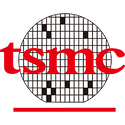
Apple Preparing M4 Chips with AI Capabilities to Fight Declining Mac Sales
While everyone has been focused on shipping an AI-enhanced product recently, one tech giant didn't appear to be bothered- Apple. However, according to Mark Gurman from Bloomberg, Apple is readying an overhaul of its Apple Silicon M-series chips to embed AI processing capabilities at the processor level. As the report indicates, Apple is preparing an update for late 2024 and early 2025 with the M4 series of chips, which will reportedly feature AI processing units similar to those found in other commercial chips. There should be three levels of the M4 series, with the entry-level M4 codenamed Donan, the mid-level M4 chip codenamed Brava, and the high-end M4 chip codenamed Hydra.
Sales of Apple Macs peaked in 2022; the following year was a sharp decline, and sales have continued to be flat since. The new AI PCs for Windows-based systems have been generating hype from all major vendors, hoping to introduce AI features to end users. However, Apple wants to be part of the revolution, and the company has already scheduled the World Wide Developer Conference for June 10th. At WWDC this year, Apple is supposed to show a suite of AI-powered solutions to enable better user experience and increase productivity. With M4 chips getting AI enhancement, the WWDC announcements will get extra hardware accelerations. However, we must wait for the exact announcements before making further assumptions.
Sales of Apple Macs peaked in 2022; the following year was a sharp decline, and sales have continued to be flat since. The new AI PCs for Windows-based systems have been generating hype from all major vendors, hoping to introduce AI features to end users. However, Apple wants to be part of the revolution, and the company has already scheduled the World Wide Developer Conference for June 10th. At WWDC this year, Apple is supposed to show a suite of AI-powered solutions to enable better user experience and increase productivity. With M4 chips getting AI enhancement, the WWDC announcements will get extra hardware accelerations. However, we must wait for the exact announcements before making further assumptions.



























































